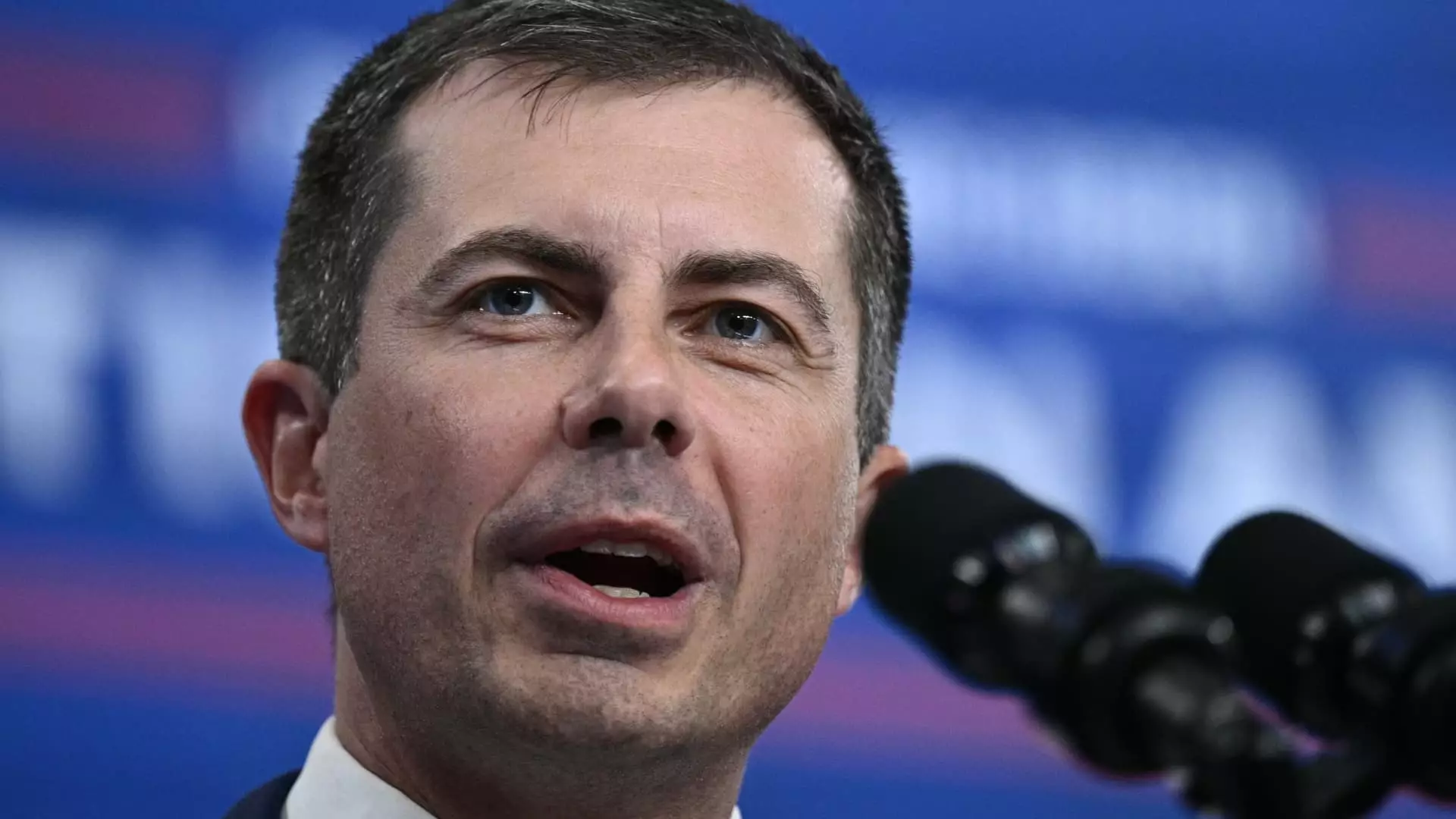In the wake of Hurricane Helene, a potent storm that wreaked havoc across parts of the Southeastern United States, the dissemination of information has become crucial. Yet, amid genuine efforts to provide disaster aid, a disconcerting trend has emerged: the propagation of false narratives by influential figures. One such case is the recent public spat between Transportation Secretary Pete Buttigieg and tech magnate Elon Musk. The clash illustrates not only the power wielded by social media giants in shaping public opinion but also the challenges faced by government entities in combating misinformation.
On a platform where Musk boasts an astounding follower count of over 200 million, Buttigieg attempted to directly address misinformation regarding federal disaster aid. Responding to Musk’s claims that the Federal Aviation Administration (FAA) was impeding rescue flights in the Hurricane Helene disaster zone, Buttigieg stated unequivocally, “No one is shutting down the airspace and FAA doesn’t block legitimate rescue and recovery flights.” This information was corroborated by an FAA spokesperson, who clarified that there are no restrictions hindering relief efforts in the affected regions.
This situation underscores a critical tension; the communication channels utilized by high-profile individuals, like Musk, can rapidly disseminate misleading information that complicates coordinated recovery efforts. Buttigieg’s public response was not just an attempt to correct the record but also a plea for responsible dialogue amidst a crisis where lives are at stake.
In today’s digital age, social media serves as a powerful tool for communication, but it can also become a double-edged sword. False claims can spread like wildfire, with real-world consequences, particularly during times of crisis. Musk’s posts, hinting that federal emergency agencies were obstructing aid, not only misled his millions of followers but also attempted to construct a narrative of government incompetence. Such a portrayal can erode public trust in vital federal agencies—especially in their moment of need.
Compounding the issue, former President Donald Trump amplified Musk’s claims on his own platform, Truth Social, reaching nearly 8 million followers without any context or correction. This interconnected web of misinformation raises alarms about the responsibilities that social media giants, as well as influential individuals, hold in ensuring their messages contribute positively, particularly during humanitarian crises.
This is not Musk’s first foray into confrontation with government authorities. The billionaire has a documented history of antagonism towards various federal agencies, including the FAA and the Environmental Protection Agency (EPA). Musk’s sentiments often reflect a broader narrative of skepticism toward federal oversight, which can resonate with segments of the public. However, such skepticism can quickly devolve into unwarranted attacks on agencies whose roles are integral to public safety and welfare.
Interestingly, while Musk’s narratives often seek to challenge institutional authority, they make little mention of his own business ventures, which heavily leverage government contracts and support. SpaceX, which has earned billions through federal agreements, and Tesla, which has benefited from government loans and tax incentives, presents a unique dichotomy in Musk’s narrative: a criticism of the very agencies that have supported his enterprises.
At the intersection of social media influence and federal responsibility lies a pressing need for accountability and accurate messaging. As the nation continues to grapple with the effects of Hurricane Helene, the consequences of misinformation can disrupt vital recovery efforts. Leaders in both the public and private sectors must prioritize responsible communication to ensure that truth prevails, especially in crises where misinformation can have life-altering implications.
What this unfolding narrative ultimately highlights is a call to action: individuals with substantial platforms must exercise caution and integrity when disseminating information. They must prioritize the common good over personal or political agendas. In an interconnected world, each voice matters, and with that power comes an obligation to ensure that these voices uplift truth rather than cloud it in chaos.


Leave a Reply